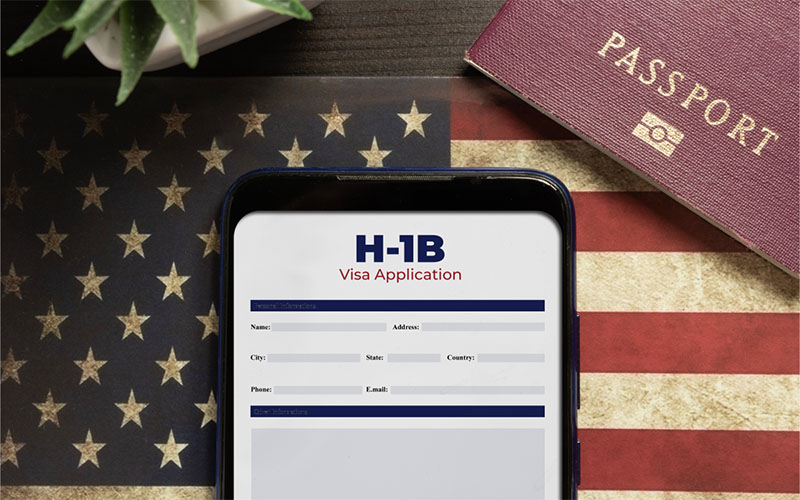The H1B visa has long served as one of the most important gateways for skilled international workers seeking employment opportunities in the United States. It is widely used by technology companies, engineering firms, healthcare providers, research institutions, and startups that rely on global talent. However, a recent change in policy has pushed the cost of applying for this visa to unprecedented levels. The new H1B visa fee increase has sparked intense debate across both immigrant communities and American businesses.
For employers, the updated fee structure means higher operational costs. For workers, it could become a financial barrier that limits access to employment opportunities in the United States. Policymakers claim the increases are designed to improve immigration processing systems, reduce fraud, and fund administrative operations. Yet many analysts question whether this approach will slow down innovation and push foreign professionals toward countries with more supportive immigration policies.
To fully understand the implications of the H1B visa fee shift, it is essential to examine how the system functions, who bears the financial burden, and what consequences may unfold across various sectors of the economy.
Breakdown Of The New H1B Visa Fee Structure
The H1B visa application process involves several mandatory payments. Previously, employers and workers shared these costs depending on company size and sponsorship terms. Under the new regulation, most filing categories have seen increases of several hundred to several thousand dollars per application.
Smaller businesses will face particular strain since many rely on international specialists to fill skill shortages. Technology startups, for example, often operate with limited budgets. An increased H1B visa fee could mean delaying or canceling critical hires. Larger corporations may be able to absorb the additional expenses, but they will still face higher overall operating costs if they sponsor multiple applicants each year.
Individual applicants also feel the pressure. While employers typically cover the majority of fees, some workers pay their own legal expenses, premium processing costs, or transfer fees if switching employers. The increased financial commitments may discourage candidates from applying, leading to reduced mobility among highly skilled professionals.
Impact On The U.S. Workforce And Innovation
Economists warn that higher costs could reduce the number of applications submitted each year. This would have a direct effect on workforce diversity and innovation. The H1B visa has historically allowed the United States to attract engineers, software developers, medical researchers, data analysts, and scientists who significantly contribute to national growth.
Many of the world’s most successful companies were built by immigrants or staffed heavily by international specialists. If the H1B visa fee becomes too high, foreign professionals may redirect their efforts toward Canada, the United Kingdom, or Australia, where immigration procedures are often more affordable and efficient.
Artificial intelligence, biotechnology, cybersecurity, and cloud engineering are among the fields most dependent on global expertise. Employers in these industries argue that limiting access to talent will reduce competitiveness. Some companies may consider moving certain operations overseas if recruiting within the United States becomes too costly or complex.
Financial Burden On Skilled Workers And Their Families
While corporations express concern about rising expenses, workers face equally difficult challenges. Many H1B applicants come from countries with lower average wages. Even if an employer covers application fees, individuals still face relocation expenses, legal documentation costs, rental deposits, transportation fees, and ongoing living expenses.
The increased H1B visa fee may not completely block entry, but it adds another obstacle to an already stressful immigration journey. Families seeking long term stability must also consider the path to permanent residency. If the overall cost of obtaining and maintaining legal status keeps escalating, some may reconsider their decision to relocate.
Stories from previous applicants highlight the emotional toll of uncertainty. Each delayed application or financial setback prolongs separation from loved ones and increases anxiety. The new fee structure, therefore, has psychological effects that extend far beyond accounting spreadsheets.
Business Responses And Calls For Reform
Industry leaders have expressed concern to policymakers. Several technology associations have proposed alternative funding strategies that do not rely solely on fee increases. Some suggest offering discounts to small businesses or creating separate fee brackets based on company revenue rather than uniform rates.
Others have called for faster processing times in exchange for higher fees. If the U.S. government can guarantee efficient approvals, employers may be more willing to accept the new cost structure. However, without improved timelines, many businesses see the change as an unfair expense with no clear benefit.
There is also growing speculation that certain companies may prioritize remote work rather than sponsorship. If cross border hiring becomes too complicated, employers might allow international employees to work from their home countries permanently. This would weaken the domestic job market and reduce tax revenue.
Future Outlook For The H1B System
The long term impact of the new H1B visa fee will depend on how companies and applicants respond in the coming years. If demand remains strong, the U.S. government is likely to continue its current strategy. If application numbers drop significantly, there may be pressure to revise certain provisions.
Alternative immigration pathways may gain popularity. Some workers could pursue the O1 visa for individuals with extraordinary ability, while others might transition into investor or startup visa plans if eligible. Universities may also increase sponsorship efforts for research roles that bypass traditional quotas.
Ultimately, the United States must balance economic protection with global competitiveness. Protecting domestic jobs is important, but limiting skilled immigration may reduce access to knowledge and innovation. A well designed policy should support both American workers and international contributors. The H1B visa fee discussion is not only about money. It is about how the country defines fairness, opportunity, and long term growth.
Read More






 Wednesday, 25-02-26
Wednesday, 25-02-26







